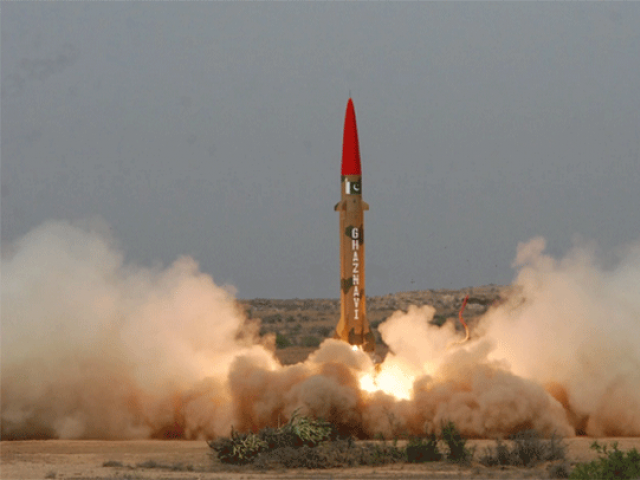Pakistan 'breaches obligations' on nuclear arms, UN court told
Marshallese minister warns even "limited nuclear war" involving two countries would "threaten existence" of his people

PHOTO: ISPR
The small Pacific Island nation is this week launching three unusual cases against India, Pakistan and Britain before the International Court of Justice.
Majuro wants to put a new spotlight on the global nuclear threat, its lawyers said on Monday, by using its own experience with massive US-led nuclear tests in the 1940s and 1950s..
Marshall Islands sue Pakistan, India and Britain over nuclear weapons
"Pakistan is in breach of its obligations owed to the international community as a whole," when it comes to reducing its nuclear stockpile, said Nicholas Grief, one of the island nation's lawyers.
Islamabad and its nuclear-armed neighbour India "continue to engage in a quantitative build-up and a qualitative improvement" of their atomic stockpiles, added Tony deBrum, a Marshallese government minister.
DeBrum warned that even a "limited nuclear war" involving the two countries would "threaten the existence" of his island nation people.
Nuclear programme: Bill seeking changes in NCA Act dropped
The ICJ's judges are holding hearings for the next week and a half to decide whether it is competent to hear the lawsuits brought against India and Pakistan -- neither of which have signed the 1968 nuclear Non-Proliferation Treaty (NPT).
A third hearing against Britain -- which has signed the NPT -- scheduled to start on Wednesday will be devoted to "preliminary objections" raised by London.
The Marshalls initially sought to bring a case against nine countries it said possessed nuclear arms: Britain, China, France, India, Israel, North Korea, Pakistan, Russia and the United States.
Israel has never admitted to having nuclear weapons.
But the Hague-based ICJ, set up in 1945 to rule in disputes between states, has only admitted three cases against Britain, India and Pakistan, because they have accepted the ICJ's compulsory jurisdiction.
Pakistan's lawyers did not attend Tuesday's hearings.
It did however file a counter-claim against Majuro's allegations saying "the court has no jurisdiction to deal with the application" and insisting that the case is "not admissible", said ICJ President Ronny Abraham.



















COMMENTS
Comments are moderated and generally will be posted if they are on-topic and not abusive.
For more information, please see our Comments FAQ